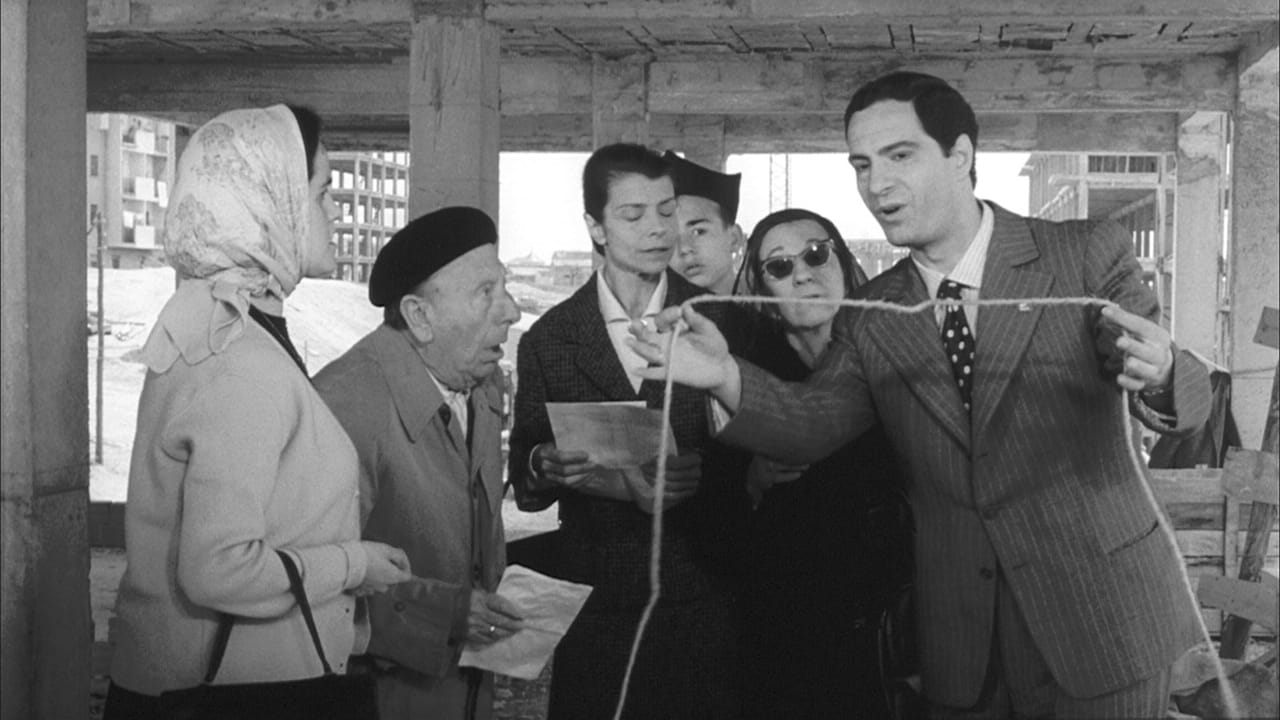

disgusting, overrated, pointless
... View Moren my opinion it was a great movie with some interesting elements, even though having some plot holes and the ending probably was just too messy and crammed together, but still fun to watch and not your casual movie that is similar to all other ones.
... View MoreVery good movie overall, highly recommended. Most of the negative reviews don't have any merit and are all pollitically based. Give this movie a chance at least, and it might give you a different perspective.
... View MoreThe thing I enjoyed most about the film is the fact that it doesn't shy away from being a super-sized-cliche;
... View MoreIt seems that people tend to think that this movie is about death penalty. It is not. It is only a leitmotiv.The movie is a strong satirical view over the middle class general situation: what people are forced to do in order to cope with general problems they meet in life and how society does not even recognize sacrifice they have to make or even worse criticized similar attempts.El verdugo, the executioner, is life itself, if not the society itself as well, if it's possible to separate the two. This is a magnificent parable that works on so many levels. Every scene tells a deeper story and how we are usually forced to follow the paths we do not know and we do not want.All along, while the middle class is struggling, trying to keep the head above the water, they are victimized in moral sense once again. Their actions are criticized from a superficial and idealistic moral perspective that does not exist. Being an executioner must mean that you are an evil person for being able to kill other human. (As if the society did not decide to terminate the culprit this way of another.) As if the executioner has some personal role in that act. And this works for so many actions in our lives. We are judged based on something that is not really there, was never there and cannot be there, as if people deliberately and constantly choose only those childish fairy-tale perspectives which can present you as a wrongdoer while you have done nothing of the sort.The movie is very true and very deep. Strangely deep and precise.
... View MoreAnother lesson of Berlanga about how to criticize the society avoiding censorship. "El Verdugo" looks like a comedy, sounds like a comedy, tastes like a comedy... But it is actually a fierce critic of the death penalty. The final sequence of this movie is one of the most brilliant ever (you cannot tell who's the criminal and who's the executioner!!!).And what to say about the great José Isbert?? He was a character himself, with that voice, and that physique. I don't know if he was a genius, I just can say that there will never be another actor like him.Berlanga + Azcona: an unbeatable team.*My rate: 10/10
... View MoreLuis García Berlanga's El Verdugo (The Executioner) was recently named the second greatest Spanish film of all time yet it still remains unknown to many non-Spanish people. Perhaps the reason it's so unknown is due to the fact that it was released during the Spanish dictatorship lead by General Franco and this did not permit it to get an international recognition and viewing. Whatever the reason, it's a pity that this little treasure of a film can not get the international recognition it deserves. It's one of the great black comedies I have seen, a fierce yet hilarious critique on the death penalty. Berlanga's inspiration is Franco's regime which practised it, but it has a universal appeal.Filled with memorable gags, the story starts with Jose Luís (Nino Manfredi), an undertaker who is thinking of moving to Germany to become a good mechanic. In love with Carmen, daughter of Amadeo (José Isbert), an executioner, he is one day discovered by her father during there moment of intimacy and is forced to marry her the undertaker marries an executioner's daughter. Jose Luís is faced with economic difficulties and the urgent need to create a new home for his new wife. The only way of solving this problem, it seems, would be accepting his father in law's offer (Amadeo): to take the vacant place of executioner Amadeo is leaving due to retirement. Only this way will he get a home. Under pressure from his surrounding, Jose Luís accepts the job convinced that he will never have to put it into practise. Life goes on pleasantly in his new home until one day he receives the feared telegram: he must execute a convicted man.The story, filmed in a black and white photography that feels so fresh, sounds serious because below the comical surface, lies not only the serious subject matter of death penalty but also the wide spread pessimism caused by Franco's regime. Director Berlange could have chosen to tell the story as sad drama but he doesn't: in a way, he is laughing at the absurd logic and inhumanity he feels the death sentence is. The film's true brilliance lies not in the wonderful all around performances, but in its screenplay that takes on a comic tone that is apparently inoffensive to condemn an action that is just as inhuman as those committed by the executed. And the great irony is that the executioner goes through much worse emotionally than the executed in a great sequence. The movie looks with amusement at the idea of how those who execute can go on there days with a calm conscience. But don't get the wrong idea, El Verdugo does not portray the condemned as victims it is not interested in there guilt or innocence. The only victims, it suggests, are those that accept to practise inhumanity under the name of justice. There are so many brilliant comical sequences that have nothing to admire from the exhausted and cheap comedies we get from many of the films nowadays.This is a film that will certainly be less appealing to those in favour of the death penalty. For those who do not which to dwell on such a subject can look at it on its simplest level, which is that of a first rate comical masterpiece.
... View MoreLike "Bienvenido Mr Marshall", this film earns its keep first of all by being wickedly funny, an achievement that once again depends partly on the director's gift for distilling his somewhat baleful observation of Spanish society into a series of deft, economical verbal and visual gags and tableaux, and partly on the talents of the unforgettable Jose Isbert, who plays, with variations, his inherited role as an apparently humourless old man to whom hilarious situations just casually adhere as he muddles through life. In "Mr Marshall" a sly rascal with a curiously intermittent hearing problem, here he acquires a touch of the wry reflectiveness of the old man whose profession condemns him to virtual social ostracism, who can invite his future son-in-law to "here, put your fingers into this light socket" with all the casual gentility of someone offering a top-up to a glass of sherry.Next to him, and reaching over from comedy towards understated tragedy, Nino Manfredi turns in a flawless performance as the young man who dreams of going to Germany to learn the trade of mechanic, but gets prodded and browbeaten into a hasty marriage, then into accepting the title and benefits of a job he hopes never to have to perform, and then... The way this progression is conveyed is masterly: while he's clearly (and fatally) manipulable (esp. by his wife), we are never for a moment allowed to dismiss, or laugh at, his character as a simpleton, even though we may laugh with uneasy recognition at his clumsy attempts at courtship (distilled in an EXT scene where he first cleans the dog-dirt from his shoe, then invites his beloved to dance, then gets shouted at for "using up someone else's music" and ends up having to provide the music himself by whistling). He is, we decide, a decent human being who mostly tries to stay out of trouble and do the right thing for himself, his wife and future offspring - the true guilt lies elsewhere. The obscure tragedy we see happening is of a man being gradually and remorselessly deprived of his values and self-respect before he's even had time to become fully aware of them or decide how important they are to him. The implied social criticism leading on from that (throttled back, as always, to get past the censors) is fairly obvious.Which leads us to those astonishing final scenes: the fairylit grotto in Palma de Mallorca where a largely tourist audience wait expectantly for some watery spectacle to occur, only to see a surreal tricorned Civil Guard drifting through in a boat and calling out to Manfredi's "Jose Luis Rodriguez" in a stentorian, megaphone-amplified "whisper"; then the scene in which we are offered a crane shot of an unfurnished prison yard with a door in the far corner, towards which we watch Jose Luis being hustled or dragged, weakly protesting, by a mixed contingent of priest and guards, very much as if he himself were the condemned prisoner. There's something so allusively haunting about that shot - whether it's the poignant detail of the dropped hat, whether the stuffing of a fat group of black-clothed people through a narrow door inspires Biblical reminiscences or suggests a birth in reverse - that it alone propels this film into some pretty select company in terms of artistic greatness. But, again like Mr Marshall, this film is so packed with visual and verbal gems that it would take a book, and several dozen viewings, to come anywhere near doing it justice.
... View More